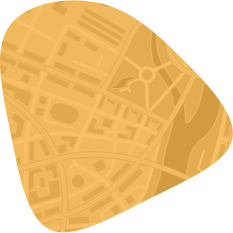
The hands are some of the most delicate parts of the human body. They're comprised of a complex combination of bones, muscles, joints, and nerves, all functioning together. A hand injury can disrupt this functioning and compromise your ability to work and perform everyday tasks. These injuries can range from cuts and bruises to more severe conditions that demand the care of an orthopedic hand surgeon.
What are the most common work-related hand injuries?
Common work-related hand injuries that orthopedic hand surgeons address include:
- Carpal tunnel syndrome: This condition arises from repetitive wrist movements. It often leads to numbness and tingling in the fingers.
- Wrist pain: Repetitive activities such as typing or tool usage can cause persistent wrist pain.
- Hand fractures: Impact from objects or falls can result in broken bones within the hand or fingers.
- Tendon lacerations: Contact with sharp objects or forceful impact to the hand can lead to deep cuts through tendons.
- Overuse injuries: These injuries stem from the repetitive strain placed on the hands and wrists. This often causes pain and inflammation.
- Nerve injuries: Compression or laceration of nerves in the hands is a common workplace injury. It may lead to permanent damage if left untreated.
Seeking prompt medical attention is important
Receiving prompt medical attention and treatment is crucial for dealing with work-related hand injuries. Untreated hand injuries can lead to permanent damage, long-lasting pain, and loss of function. In some cases, it can lead to disability.
Early intervention allows orthopedic specialists to diagnose and treat hand injuries before they worsen. Surgery and other medical interventions can alleviate debilitating pain and enhance hand function.
What does surgery entail after a hand injury?
Before any surgical procedure, our orthopedic surgeons will conduct a comprehensive assessment and diagnosis of your hand injury. We'll also evaluate your medical history and perform a physical examination. We may use diagnostic imaging such as X-rays, MRI, or CT scans to pinpoint the problem accurately.
We'll then develop a treatment plan for your specific condition. This plan may include surgical or non-surgical procedures, depending on the nature and severity of the injury.
Non-critical injuries often require casting, splinting, rehabilitation, and cortisone injections. Severe hand injuries are often unresponsive to nonsurgical treatments. In this case, surgery may be required to make a recovery.
The types of treatments we may explore include:
- Carpal tunnel release
- Fracture repair
- Tendon and ligament repair
- Joint replacement
- Nerve repair
- Soft tissue reconstruction
What happens after surgery for a hand injury?
Following surgery for work-related hand injuries, you'll likely need to undergo rehabilitation and physical therapy. Depending on the nature of your hand injury, consistent therapy sessions can help you make improvements in hand function. The aim is to enable you to return to normal work activities with reduced pain and increased mobility.
Therapy and rehabilitation may include:
- Range of motion exercises that aim to improve or restore the full range of motion in the hand and wrist. These exercises may involve stretching and gentle movements to increase flexibility.
- Strength training exercises that target the muscles and tendons in the hands and wrists. These exercises help rebuild strength that may have been lost due to injury or surgery.
- Pain Management such as ice, heat, and electrical stimulation.
- Manual therapy, such as massage and joint mobilization. This helps improve joint and soft tissue mobility and reduce stiffness.
Contact our New York orthopedic office to start your hand injury recovery
If your hands, fingers, or wrists have sustained injuries in the workplace, the hand surgeons at Island Musculoskeletal Care are here to help. With over 100 years of combined medical experience, we understand how painful and debilitating hand and wrist injuries can be. Our seven New York offices are equipped with state-of-the-art MRI machines for precise diagnosis to support your workers' compensation claim.
Contact IMC Bone Doc to schedule an appointment with an experienced New York orthopedic hand surgeon. We have offices in The Bronx, Brooklyn, Deer Park, Patchogue, Richmond Hill, Shirley, and Valley Stream.






















